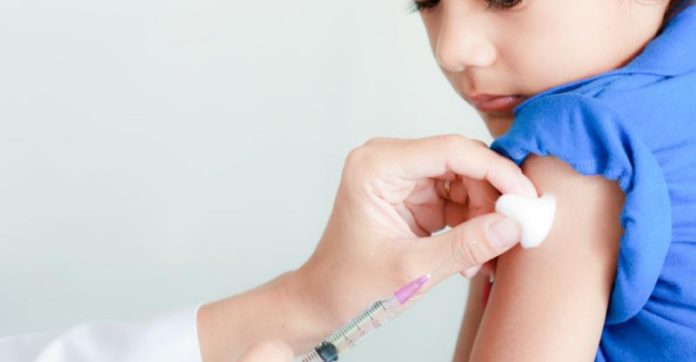
Families with underimmunized or unvaccinated children tend to cluster together in close geographical proximity, a new study reveals, leading to what experts say is a “hotbed” of vaccine-preventable diseases. The findings of the spatial analysis are published in the journal Pediatrics.
“This research confirms anecdotal reports of underimmunization clusters,” said Tracy A. Lieu, MD, MPH, the study’s lead author, a Kaiser Permanente pediatrician, and director of the Kaiser Permanente Division of Research. “In addition, we found clusters in places we hadn’t anticipated.”
While the Centers for Disease Control and Prevention reports that vaccine rates remain high, some vaccine-preventable diseases, like measles, have made comebacks in recent years as a discredited, but nonetheless widespread, anti-vaccine movement has continued to grow.
Dr. Lieu and colleagues hope that by identifying clusters of people who refuse to vaccinate their children or refuse certain shots, researchers can better target prevention efforts.
For the new study, they analyzed records for 154,424 children born between 2000 and 2011 in 13 California counties. All were members of Kaiser Permanente Northern California, a large nonprofit health plan.
Nearly 1 in 4 children in ‘clusters’ at risk of vaccine-preventable diseases
Using those records, they were able to identify five clusters with higher rates of three-year-olds who had missed at least one vaccine. About 18 percent to 23 percent of children in those clusters were underimmunized, compared to about 11 percent of children outside those clusters.
Children whose parents refused vaccines were also clustered in geographic areas. Rates of refusal ranged from about 6 percent to about 14 percent in the clusters, compared to about 3 percent outside of those areas.
According to the CDC, children are considered to be underimmunized when they miss one or more recommended vaccine doses before age three, while vaccine refusal means not allowing a child to receive any vaccines.
In addition to targeting those areas for public health messages, Dr. Lieu said doctors can be more alert to the possibility of vaccine-preventable disease. “If you know there is a cluster of undervaccination or vaccine refusal in a certain area, you may be more vigilant,” she said.
The study can’t say why these areas of underimmunization and vaccine refusal formed, but researchers say misinformation about vaccine safety is a likely reason.
“This really identifies a nice mechanism to identify where there might be a problem with misconceptions or whatever the reason is, but an area where resources can be well spent to provide more focused information and dispel and misinformation people may have,” Dr. Lieu said. “Our findings raise awareness that there may be communities where parents have more vaccine hesitancy and may be interested in more information or more in-depth conversations with their children’s doctors.”
Anti-vaccine consequences
The Centers for Disease Control’s immunization schedule recommends a minimum of 17 separate injections during a child’s first two years of life, including for hepatitis A and B, diphtheria, tetanus, pertussis, influenza, polio, measles, mumps, rubella, and pneumococcal virus. Underimmunization is associated with elevated risk of vaccine-preventable disease, while nonmedical immunization exemption and refusal have been associated with increased community risk of measles and pertussis.
While vaccination rates in the U.S. stayed extremely high for decades, they began to drop after publication of a study in 1998 that claimed to link ingredients in the MMR (measles, mumps, rubella) vaccine to autism. The alleged connection has since been widely discredited in scientific, medical and governmental circles, but the anti-vaccination movement still thrives. Exemption rates based on medical, religious or personal beliefs have risen across the country in the past decade, especially in states such as California and Oregon.
Medical experts, meanwhile, cite years of research that have consistently proven that vaccines are safe and effective, warning that refusing to vaccinate is dangerous for individual families and the public at large. Indeed, many experts are taking the position that vaccination is not just a personal choice, but a social responsibility, as those refusing vaccinations could compromise herd immunity for the rest of us.
“Clusters of families who are not vaccinating their children are inadvertently creating communities with weaker herd immunities, further increasing the likelihood of an infectious outbreak,” Daniel Rubin and Sophie Kasimow write in the Michigan Law Review. They continue:
As people lose sight of how their own welfare is connected to that of society, they may fail to adequately respect the importance of a collective herd immunity. While some groups of like-minded parents have formed tightly knit communities in solidarity with each other, they may not see themselves in solidarity with a family two zip codes away.
Being vaccinated, like paying taxes or serving on a jury, can be considered a responsibility of citizenship. Those who do not take precaution via vaccination have failed to fulfill a duty, albeit a civic one.
